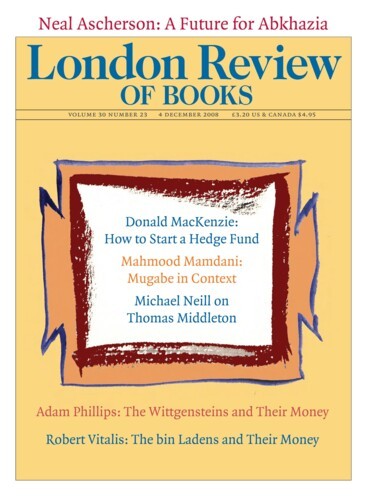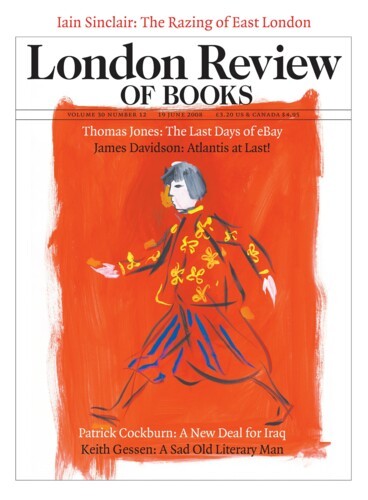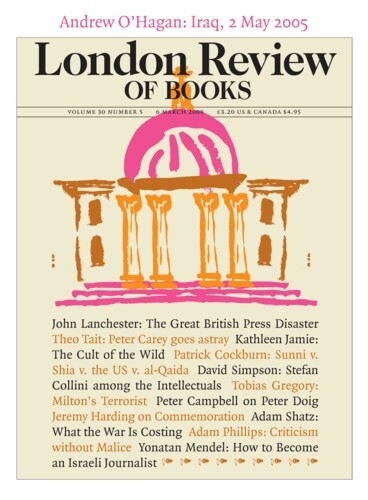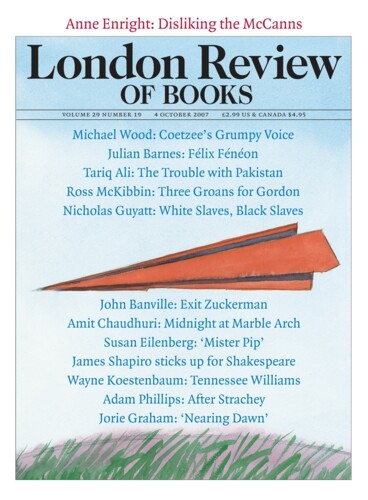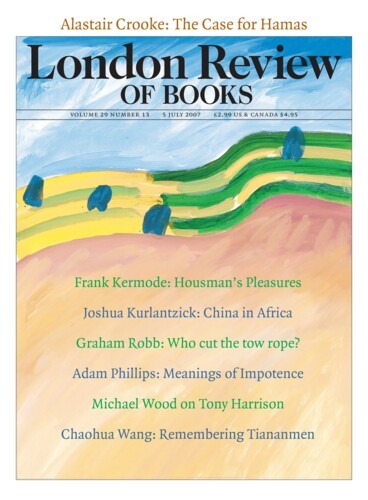Self-Made Aristocrats: The Wittgensteins and Their Money
Adam Phillips, 4 December 2008
‘Whereof we cannot speak, thereof we must be silent’: it’s a notion children pick up quite quickly. It is also, of course, a remark about the limits of what we can use language to do, but Wittgenstein is unusual as a philosopher because he so often writes about the difficulties a child has growing up in a family. His wish to clarify the world as he finds it, his stress on ‘perspicuous representations’ and ‘just that understanding which consists in “seeing connections”’, turns the figure of the philosopher into the kind of child who wants to understand what is going on in his family, as opposed to the child who takes refuge from his family in a fantasy life. For Wittgenstein, this is the difference between working out what people are using words to do in a more or less shared family life and being a metaphysician living in a world (or a system) of your own making.
